En el mundo moderno, las redes sociales se han convertido en una parte integral de nuestras vidas. Aunque nos proporcionan una plataforma para conectarnos con amigos, familiares y el mundo en general, también pueden tener efectos adversos en nuestra percepción de la realidad y, en consecuencia, en nuestra felicidad.
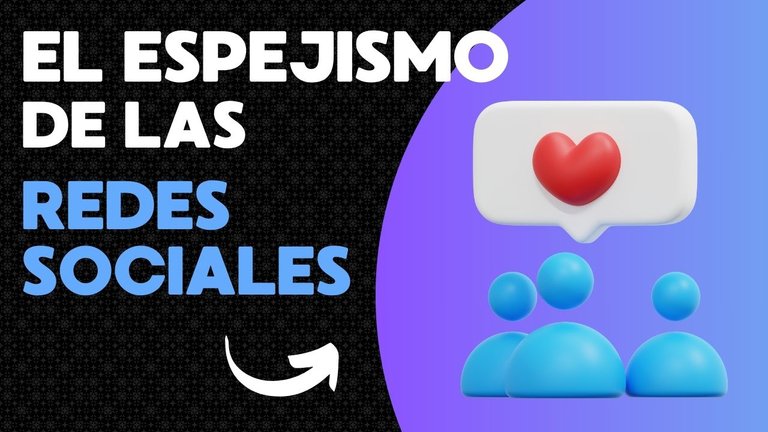
A pesar de que este tema se discute con frecuencia, a menudo se toma a la ligera. Es crucial reconocer que muchos de nosotros, al comparar nuestras vidas con las de los demás en redes sociales, podemos sentirnos insatisfechos, creyendo erróneamente que algo está mal con nosotros. Este artículo tiene como objetivo explorar cómo podemos ser felices a pesar de las redes sociales y superar el espejismo digital.
Las redes sociales crean una ilusión de vidas perfectas, donde los desafíos y dificultades son invisibles. Esta ilusión afecta nuestra vida diaria, generando expectativas irreales y comparaciones dañinas. A menudo, lo que se muestra en las redes es solo una parte seleccionada y embellecida de la vida real. Es esencial recordar que las personas también enfrentan sus propios retos y dificultades, aunque no los compartan públicamente. Las redes sociales también pueden ser un escaparate para la comparación constante.
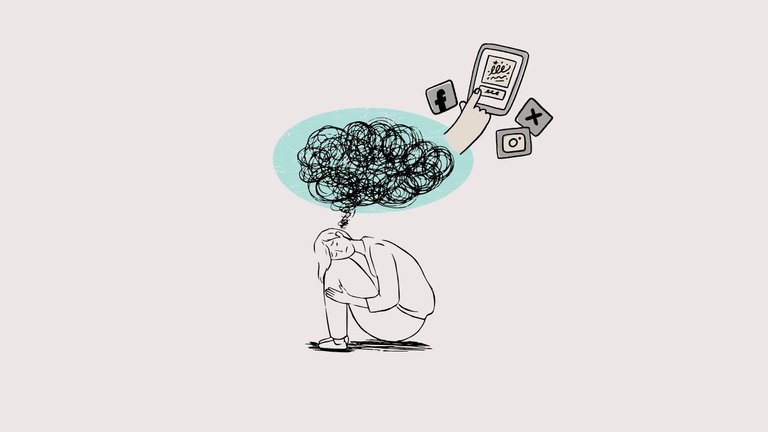
Nos encontramos mirando las vidas aparentemente perfectas de los demás y nos preguntamos por qué nuestras propias vidas no se ven de esa manera. Esta comparación puede llevarnos a sentirnos insatisfechos y creer que algo está mal con nosotros, cuando en realidad, la vida de todos tiene altos y bajos.
Ser auténtico en la era digital es vital. En lugar de compararnos con otros, debemos centrarnos en nuestra propia autenticidad. Evitar la comparación negativa es clave para mantener una perspectiva saludable. Al celebrar nuestras propias victorias y reconocer nuestras fortalezas y logros, nos ayuda a mantenernos centrados y felices.

La autenticidad nos permite mostrarnos tal como somos, con nuestras fortalezas y debilidades. Nos libera de la presión de tener que cumplir con las expectativas irreales que las redes sociales pueden imponer. Cuando somos auténticos, establecemos relaciones más genuinas y significativas con los demás, y esto contribuye a nuestra felicidad.
Las tendencias en redes sociales pueden afectar nuestra felicidad al imponernos normas y expectativas ajenas. Por ejemplo, el minimalismo, aunque popular, no es adecuado para todos. Algunos encuentran felicidad en un poco de caos y desorden. Es importante encontrar un equilibrio entre seguir tendencias y mantener nuestra propia identidad.

La tendencia al minimalismo es un buen ejemplo de cómo una corriente popular en redes sociales puede influir en nuestras vidas. En su apogeo, parecía que todo el mundo optaba por el minimalismo como una máxima. Sin embargo, muchas personas no son felices con esta tendencia y prefieren un entorno más lleno de vida y cosas. Otros, en cambio, pueden optar por un minimalismo más espiritual, y menos de impolutas paredes blancas. Algo tan simple como estar al tanto de las tendencias más actuales puede afectar nuestra felicidad.

Muchas personas ocultan aspectos de sus vidas por miedo a mostrarse vulnerables. Respetar la privacidad de los demás es fundamental para evitar comparaciones dañinas. Entender que no todo lo que vemos en las redes es la realidad completa nos ayuda a mantener una perspectiva equilibrada.
En redes sociales, las personas tienden a mostrar solo lo mejor de sus vidas. Esto puede llevarnos a creer que sus vidas son perfectas, lo cual no es cierto. Todos enfrentamos desafíos y dificultades, pero no todos elegimos compartir esos momentos en público. Es importante recordar que las redes sociales son solo una ventana parcial a la vida de las personas y no reflejan la realidad completa.
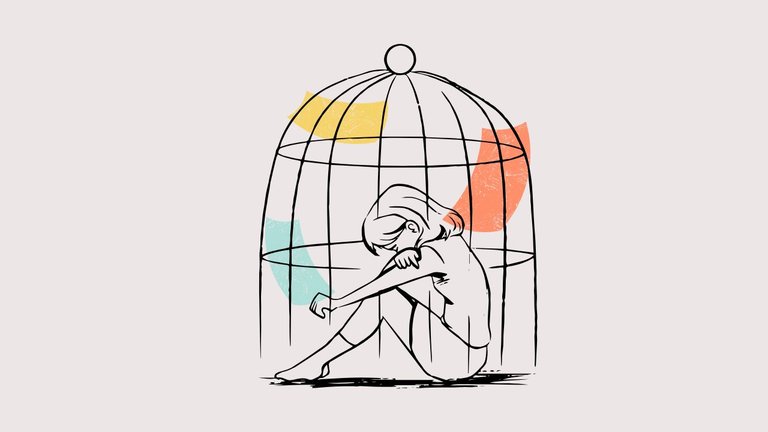
Las redes sociales contribuyen a la difusión de noticias sensacionalistas y polarizadas, lo que afecta nuestra percepción de la realidad y nuestra felicidad. Para evitar caer en el sensacionalismo, es importante mantener una actitud crítica y analítica ante el contenido que consumimos.
El contenido polarizado y las noticias sensacionalistas pueden generar una falsa sensación de urgencia y preocupación. Esto no solo afecta nuestra percepción de la realidad, sino que también puede influir en nuestra felicidad y bienestar. Para contrarrestar esto, debemos desarrollar una mentalidad crítica y analizar cuidadosamente el contenido que consumimos. No todo lo que se comparte en redes sociales es cierto o relevante para nuestra vida.

Fomentar una cultura crítica y analítica es esencial para el uso saludable de las redes sociales. Desarrollar una mentalidad crítica nos permite analizar y cuestionar el contenido que consumimos, evitando así las trampas de la comparación y la insatisfacción. Educar a las generaciones más jóvenes sobre los peligros y beneficios de las redes es crucial para su bienestar.
La educación en el uso de redes sociales debe comenzar desde una edad temprana. Los jóvenes necesitan aprender a navegar por el mundo digital con una mentalidad crítica y analítica. Esto incluye entender que no todo lo que ven en redes sociales es real o auténtico. Al fomentar una cultura crítica, podemos ayudar a las generaciones futuras a usar las redes sociales de manera saludable y beneficiosa.
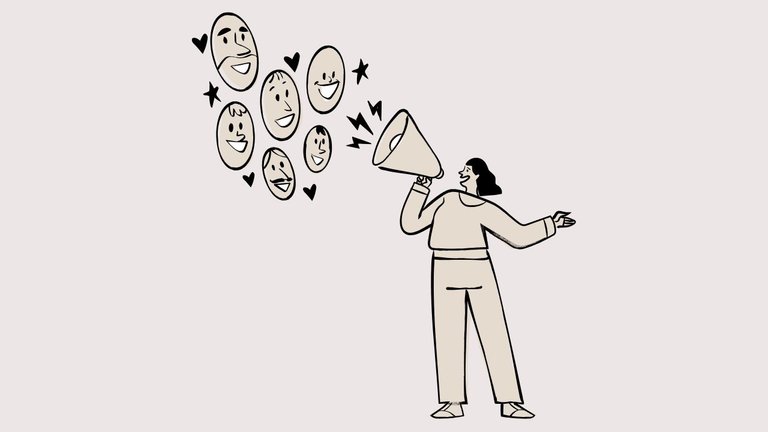
La resiliencia nos ayuda a enfrentar la influencia negativa de las redes sociales. Practicar la atención plena nos mantiene presentes y centrados. Crear comunidades en las redes basadas en relaciones auténticas y significativas puede proporcionar un apoyo valioso.
La resiliencia es la capacidad de recuperarse de las adversidades y adaptarse a los desafíos. En el contexto de las redes sociales, la resiliencia nos permite enfrentar la comparación negativa y la insatisfacción. Practicar la atención plena, o mindfulness, nos ayuda a estar presentes en el momento y a centrarnos en lo que realmente importa. Al crear comunidades en redes sociales basadas en relaciones auténticas y significativas, podemos encontrar apoyo y conexión genuina.

Podemos ser felices a pesar de las redes sociales si aprendemos a ver más allá del espejismo digital. Adoptar una perspectiva más crítica y saludable sobre el uso de las redes sociales, fomentando la autenticidad, la resiliencia y las relaciones genuinas, es esencial. Para aquellos interesados en profundizar en estos temas, recomendamos explorar recursos sobre bienestar y redes sociales.
Sin embargo, al ser conscientes de su impacto y desarrollar una mentalidad crítica, podemos aprender a usar las redes de manera que beneficien nuestro bienestar en lugar de perjudicarlo. Al enfocarnos en la autenticidad, evitar comparaciones negativas y fomentar relaciones significativas, podemos encontrar la felicidad y el equilibrio en el mundo digital.
Quiero agradecerles sinceramente por tomarse el tiempo de leer este artículo. Su apoyo significa mucho para mí y me motiva a seguir compartiendo contenido que pueda ser útil e interesante para ustedes. Si encontraron este artículo útil o disfrutaron leyéndolo, les agradecería enormemente sus comentarios. Éxitos.

| Todas las imágenes han sido obtenidas y/o creadas desde Canva |
|---|
| Bibliografía consultada/Referentes |
|---|
| Caravaggio, L. A. (2024). ¿ Cómo afecta el uso de redes sociales a la felicidad?. Revista de Economía Política de Buenos Aires, 18(28), 57-100. |
| Polo Mouliaa, M. (2024). LAS REDES SOCIALES Y LA FELICIDAD. |
| Santos, F. R. (1994). Redes de amistad, felicidad y familia. Reis, 73-89. |
| Expansión. (2024, marzo 26). ¿Las redes sociales nos hacen más felices o infelices?. https://expansion.mx/tecnologia/2024/03/26/las-redes-sociales-nos-hacen-mas-felices-o-infelices |
| La Vanguardia. (2022, diciembre 5). Siempre felices en redes sociales. https://www.lavanguardia.com/vida/junior-report/20221205/8634477/siempre-felices-redes-sociales.html |
The Mirage of Social Networks
In the modern world, social media has become an integral part of our lives. While they provide us with a platform to connect with friends, family and the world at large, they can also have adverse effects on our perception of reality and, consequently, on our happiness.
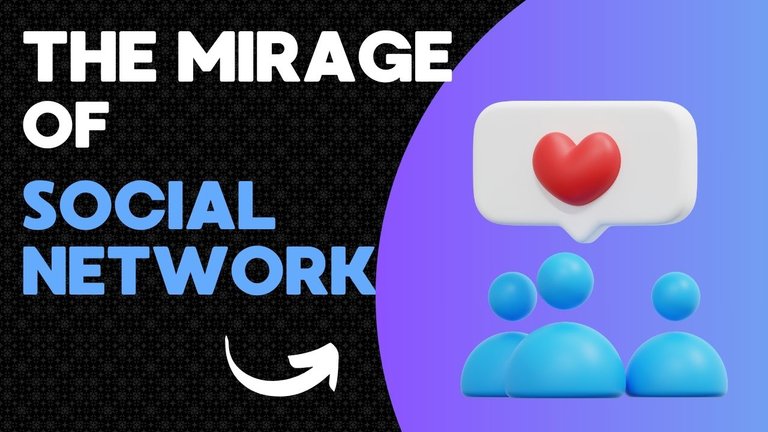
Although this topic is frequently discussed, it is often taken lightly. It is crucial to recognize that many of us, when comparing our lives to those of others on social networks, may feel dissatisfied, mistakenly believing that something is wrong with us. This article aims to explore how we can be happy despite social networks and overcome the digital mirage.
Social networks create an illusion of perfect lives, where challenges and difficulties are invisible. This illusion affects our daily lives, generating unrealistic expectations and harmful comparisons. Often, what is shown on the networks is only a selected and embellished part of real life. It is essential to remember that people also face their own challenges and difficulties, even if they do not share them publicly. Social networks can also be a showcase for constant comparison.

We find ourselves looking at the seemingly perfect lives of others and wondering why our own lives don't look that way. This comparison can lead us to feel dissatisfied and believe that something is wrong with us, when in reality, everyone's life has ups and downs.
Being authentic in the digital age is vital. Instead of comparing ourselves to others, we should focus on our own authenticity. Avoiding negative comparison is key to maintaining a healthy perspective. By celebrating our own victories and recognizing our strengths and accomplishments, it helps us stay focused and happy.

Authenticity allows us to show up as we are, with our strengths and weaknesses. It frees us from the pressure of having to live up to the unrealistic expectations that social networks can impose. When we are authentic, we establish more genuine and meaningful relationships with others, and this contributes to our happiness.
Social media trends can affect our happiness by imposing alien standards and expectations on us. For example, minimalism, while popular, is not right for everyone. Some people find happiness in a bit of chaos and clutter. It is important to find a balance between following trends and maintaining our own identity.

The minimalism trend is a good example of how a popular trend in social media can influence our lives. In its heyday, it seemed that everyone opted for minimalism as a maxim. However, many people are unhappy with this trend and prefer a more cluttered and cluttered environment. Others, on the other hand, may opt for a more spiritual minimalism, and less of pristine white walls. Something as simple as being aware of the latest trends can affect our happiness.

Many people hide aspects of their lives for fear of appearing vulnerable. Respecting the privacy of others is essential to avoid harmful comparisons. Understanding that not everything we see on social media is the full reality helps us maintain a balanced perspective.
On social networks, people tend to show only the best of their lives. This can lead us to believe that their lives are perfect, which is not true. We all face challenges and difficulties, but not all of us choose to share those moments publicly. It is important to remember that social media is only a partial window into people's lives and does not reflect the full reality.

Social media contributes to the spread of sensationalized and polarized news, which affects our perception of reality and our happiness. To avoid falling into sensationalism, it is important to maintain a critical and analytical attitude towards the content we consume.
Polarized content and sensational news can generate a false sense of urgency and worry. This not only affects our perception of reality, but can also influence our happiness and well-being. To counteract this, we must develop a critical mindset and carefully analyze the content we consume. Not everything that is shared on social media is true or relevant to our lives.

Fostering a critical and analytical culture is essential for the healthy use of social networks. Developing a critical mindset allows us to analyze and question the content we consume, thus avoiding the traps of comparison and dissatisfaction. Educating younger generations about the dangers and benefits of networks is crucial to their well-being.
Education in the use of social networks should start from an early age. Young people need to learn to navigate the digital world with a critical and analytical mindset. This includes understanding that not everything they see on social networks is real or authentic. By fostering a critical culture, we can help future generations use social networks in a healthy and beneficial way.

Resilience helps us cope with the negative influence of social media. Practicing mindfulness keeps us present and focused. Creating communities in networks based on authentic and meaningful relationships can provide valuable support.
Resilience is the ability to bounce back from adversity and adapt to challenges. In the context of social networks, resilience enables us to cope with negative comparison and dissatisfaction. Practicing mindfulness helps us to be present in the moment and focus on what really matters. By creating communities in social networks based on authentic and meaningful relationships, we can find genuine support and connection.

We can be happy despite social media if we learn to see beyond the digital mirage. Adopting a more critical and healthy perspective on social media use, fostering authenticity, resilience and genuine relationships, is essential. For those interested in delving deeper into these topics, we recommend exploring resources on wellness and social media.
However, by being aware of their impact and developing a critical mindset, we can learn to use networks in ways that benefit our well-being rather than harm it. By focusing on authenticity, avoiding negative comparisons and fostering meaningful relationships, we can find happiness and balance in the digital world.
I want to sincerely thank you for taking the time to read this article. Your support means a lot to me and motivates me to continue sharing content that may be useful and interesting to you. If you found this article useful or enjoyed reading it, I would greatly appreciate your comments. Best of luck.

Translated with DeepL.com (free version)
I apologize if there are any grammatical errors, English is not my native language, I have tried to be as careful as possible.
I regularly create images on Pixabay, which are free of copyright. Access my gallery by clicking here.
All assets, illustrations and banners have been created by me and are original content, unless otherwise specified.
The cover of this article was created using Canva.
| I’m Ernesto, a Cuban passionate about art and writing. Always learning, always growing. Excited to share and learn more every day! I write about art, drawing, video games, nature, and review the things I like. My goal is to inspire and connect with others through my creative journey. |
|---|
Congratulations @soyernesto! You have completed the following achievement on the Hive blockchain And have been rewarded with New badge(s)
Your next target is to reach 11000 upvotes.
You can view your badges on your board and compare yourself to others in the Ranking
If you no longer want to receive notifications, reply to this comment with the word
STOPCheck out our last posts:
¡Felicitaciones!
1. Invierte en el PROYECTO ENTROPÍA y recibe ganancias semanalmente. Entra aquí para más información.
3. Suscríbete a nuestra COMUNIDADEntra aquí para más información sobre nuestro trail., apoya al trail de @Entropia y así podrás ganar recompensas de curación de forma automática.
4. Creación de cuentas nuevas de Hive aquí.
5. Visita nuestro canal de Youtube.
Atentamente
El equipo de curación del PROYECTO ENTROPÍA